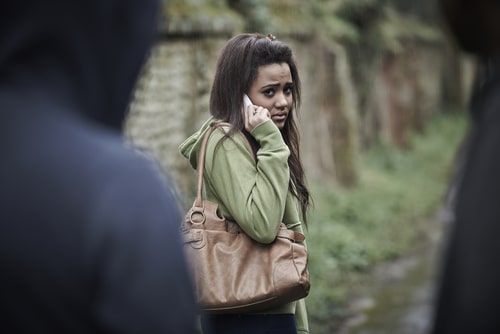Three Facts About Civil No-Contact Orders in Illinois
 In our last blog post, we discussed Orders of Protection in Illinois and how they can be obtained. Orders of Protection are meant to keep victims and abusers separate when they share or have shared a domestic relationship. But not all victims are in domestic relationships, and in these cases, other help may be necessary.
In our last blog post, we discussed Orders of Protection in Illinois and how they can be obtained. Orders of Protection are meant to keep victims and abusers separate when they share or have shared a domestic relationship. But not all victims are in domestic relationships, and in these cases, other help may be necessary.
Fortunately, there are other types of protection that victims can obtain from an Illinois court. “Civil no-contact orders” protect victims of “nonconsensual sexual conduct” who want their abuser to be prohibited from contacting them. If you feel you are in danger of harm, whether psychological or physical, a civil no-contact order may be helpful to you.
Who Can Get a Civil No-Contact Order?
The purpose of a civil no-contact order is to protect victims of sexual assault. According to Illinois law, this includes any nonconsensual sexual conduct or sexual penetration. Civil no-contact orders can protect more than just the victim - her children, parents, current partner, and other household members can also be included in the petition so the abuser cannot contact them or harass the victim through other people. Parents can also obtain civil no-contact orders on behalf of a minor child.
Furthermore, the civil no-contact order can apply to more than just the perpetrator. If anyone else was involved in helping the perpetrator commit acts of sexual assault, they can be included in the order and prohibited from contacting the victim.
How Do You Get a Civil No-Contact Order in Illinois?
Similar to an Order of Protection, civil no-contact petitions must be filed in court and the victim must present evidence to a judge. Civil no-contact orders may be filed independently in a civil court or as part of a criminal case against the abuser. A judge will review the evidence and, if he or she believes it has merit, inform the other party of the allegations and summon them to a hearing. Because it can be very traumatic for victims to testify in front of their abusers, judges may allow victims to testify in the judge’s private chambers instead of the open courtroom.
How Long Does a Civil No-Contact Order Last?
Emergency civil no-contact orders can last between 14 and 21 days before the hearing is scheduled and the abuser appears in court. If the victim presents a preponderance of evidence - meaning the evidence suggests the abuse is more likely to have happened than not - a judge can extend the civil no-contact order for up to two years.
Schedule a Consultation with a Homewood, IL No-Contact Order Lawyer
Sexual assault is one of the worst forms of violation against another that someone can commit. Unfortunately, when victims do not take action against an abuser, the abuse may continue. At The Foray Hurst Firm, we advocate passionately on behalf of victims of sexual assault and domestic violence so they can get the help and protection they need. Call our offices today to schedule a confidential consultation with an experienced and compassionate Cook County civil no-contact order attorney. Contact us at 312-702-1293.
Source:
https://www.ilga.gov/legislation/ilcs/ilcs5.asp?ActID=2491&ChapterID=57








